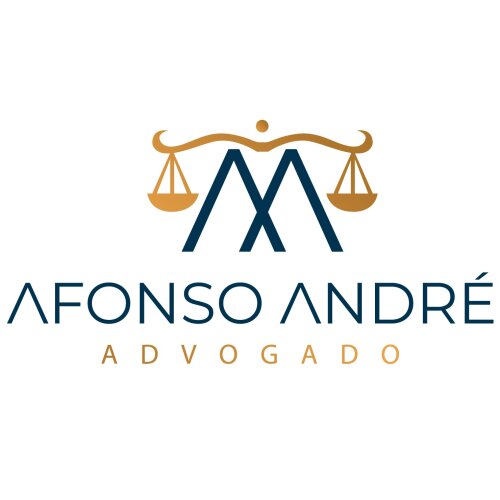Best Banking & Finance Lawyers in Angola
Share your needs with us, get contacted by law firms.
Free. Takes 2 min.
Or refine your search by selecting a city:
List of the best lawyers in Angola
About Banking & Finance Law in Angola
Banking and finance law in Angola is a dynamic and critical sector that supports the nation's economic development. Angola's banking system is primarily dominated by commercial banks, some of which are state-owned, alongside private entities. The country's financial sector has seen considerable reforms over the years, aimed at increasing transparency, improving regulatory frameworks, and promoting financial inclusion. The National Bank of Angola (Banco Nacional de Angola, BNA) serves as the central bank and is responsible for the monetary and foreign exchange policies, as well as the regulation of the banking sector.
Why You May Need a Lawyer
In the banking and finance domain, there are numerous scenarios where legal expertise is crucial. You may need a lawyer if you are:
- Negotiating complex financial agreements or loan contracts.
- Involved in disputes with financial institutions regarding loan terms, interest rates, or payment defaults.
- Engaged in mergers, acquisitions, or restructuring in the financial sector.
- Ensuring compliance with Angola's banking regulations, anti-money laundering laws, or other financial legislation.
- Seeking assistance in recovering debts or managing insolvency.
- Launching new financial products and services and need regulatory approval.
Local Laws Overview
Angola's banking and finance laws are grounded in Portuguese civil law systems, with unique adaptations to fit local contexts. Key regulations include:
- The Banking Law, which governs licensing, operations, and the regulation of banks.
- Foreign Exchange Laws, which stipulate the control and management of foreign currency transactions.
- Securities Market Code, which oversees capital markets and their operations.
- Anti-Money Laundering Law, aimed at combating illegal financial activities and ensuring transparency.
- Corporate Tax Laws, impacting financial transactions and corporate financial management.
Frequently Asked Questions
What banking institutions operate in Angola?
Angola hosts a range of banking institutions including state-owned, private, and international banks. Major banks include Banco de Poupança e Crédito (BPC), Banco Angolano de Investimentos (BAI), and Standard Bank.
How is the central bank involved in banking and finance?
The National Bank of Angola regulates monetary policy and oversees the banking sector to ensure financial stability and compliance with laws.
Are there limitations on foreign investment in Angola?
While there are no strict prohibitions on foreign investment, certain strategic sectors may require government approval and compliance with foreign exchange regulations.
What are the requirements for opening a bank account in Angola?
Requirements typically include identity documents, proof of residence, and compliance with financial policies, which may vary by bank.
Is it necessary to report foreign exchange transactions?
Yes, Angola has stringent foreign exchange control laws that require the declaration of transactions involving foreign currencies.
What measures are in place for dealing with bankruptcy?
Angola has laws allowing for the restructuring, recovery, or liquidation of insolvent businesses under judicial supervision.
What consumer protections are available in banking services?
Angola's legal framework includes consumer protection laws intending to safeguard client rights against unfair banking practices.
How are loan interest rates regulated?
The National Bank of Angola sets base interest rates that guide commercial banks in determining their loan and deposit rates.
What is required for compliance with anti-money laundering laws?
Financial institutions must implement procedures to identify, monitor, and report suspicious activities in line with the law.
Is internet banking widely available in Angola?
Yes, many banks offer internet and mobile banking services, although access may vary depending on infrastructure and service provider.
Additional Resources
For those seeking additional resources on banking and finance in Angola, consider the following:
- National Bank of Angola: The central regulatory authority for banking and finance.
- Angolan Ministry of Finance: Provides financial policy guidance and updates.
- Angolan Investment Promotion Agency: Offers resources for foreign investors and business setup advice.
- Angola Banking Association: Represents banking industry interests and provides sector information.
Next Steps
If you need legal assistance in the field of banking and finance in Angola, consider the following steps:
- Identify a reputable law firm with expertise in banking and finance law.
- Schedule consultations to discuss your specific legal needs and obtain advice.
- Prepare necessary documentation and information to aid in initial consultations.
- Ensure the lawyer or law firm selected is registered with the Angolan Bar Association.
- Discuss and clarify fees, terms of service, and expected outcomes with the chosen firm.
Lawzana helps you find the best lawyers and law firms in Angola through a curated and pre-screened list of qualified legal professionals. Our platform offers rankings and detailed profiles of attorneys and law firms, allowing you to compare based on practice areas, including Banking & Finance, experience, and client feedback.
Each profile includes a description of the firm's areas of practice, client reviews, team members and partners, year of establishment, spoken languages, office locations, contact information, social media presence, and any published articles or resources. Most firms on our platform speak English and are experienced in both local and international legal matters.
Get a quote from top-rated law firms in Angola — quickly, securely, and without unnecessary hassle.
Disclaimer:
The information provided on this page is for general informational purposes only and does not constitute legal advice. While we strive to ensure the accuracy and relevance of the content, legal information may change over time, and interpretations of the law can vary. You should always consult with a qualified legal professional for advice specific to your situation.
We disclaim all liability for actions taken or not taken based on the content of this page. If you believe any information is incorrect or outdated, please contact us, and we will review and update it where appropriate.
Browse banking & finance law firms by service in Angola
Angola Attorneys in related practice areas.
Browse banking & finance law firms by city in Angola
Refine your search by selecting a city.
















